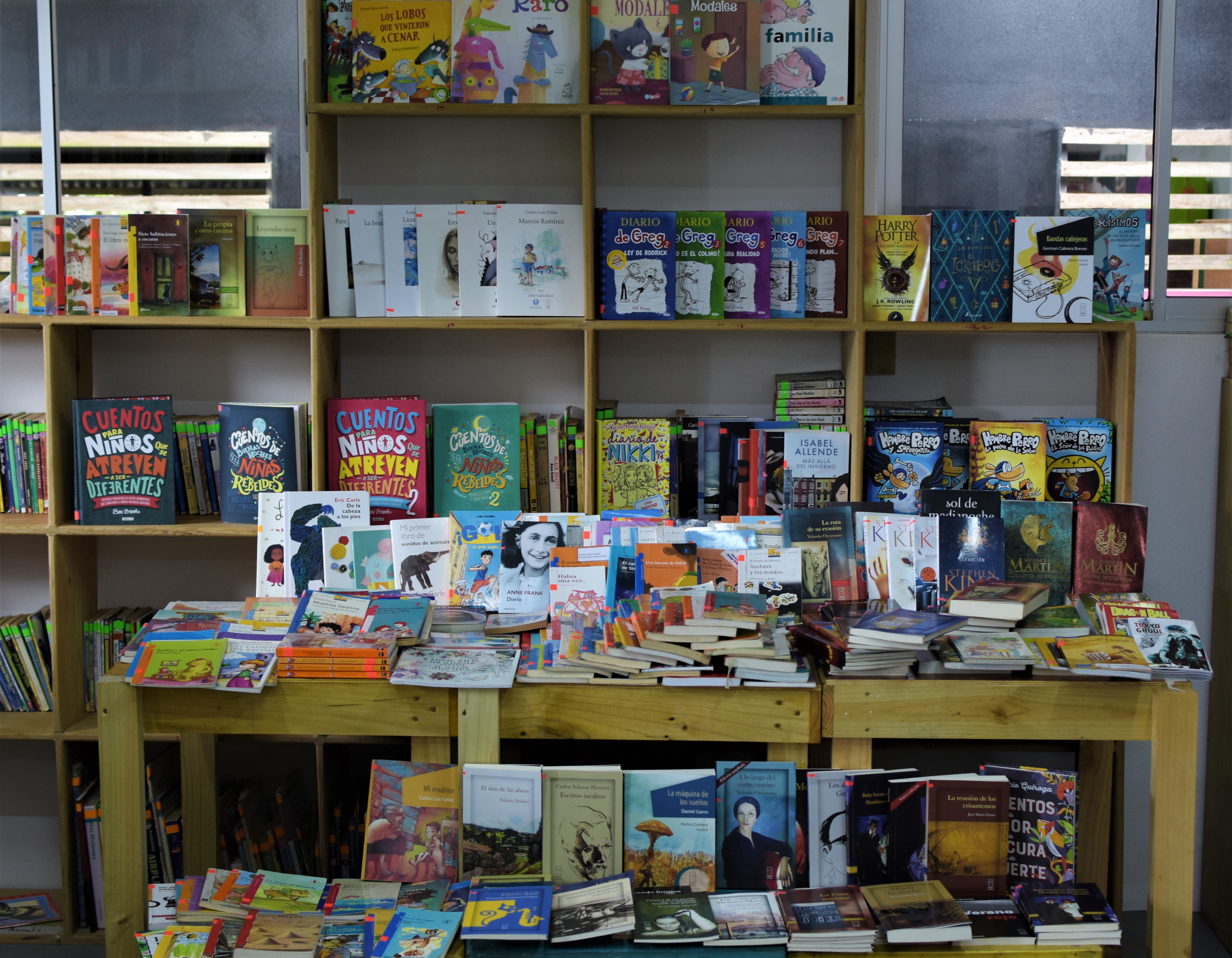
by Hileyn | Oct 30, 2021
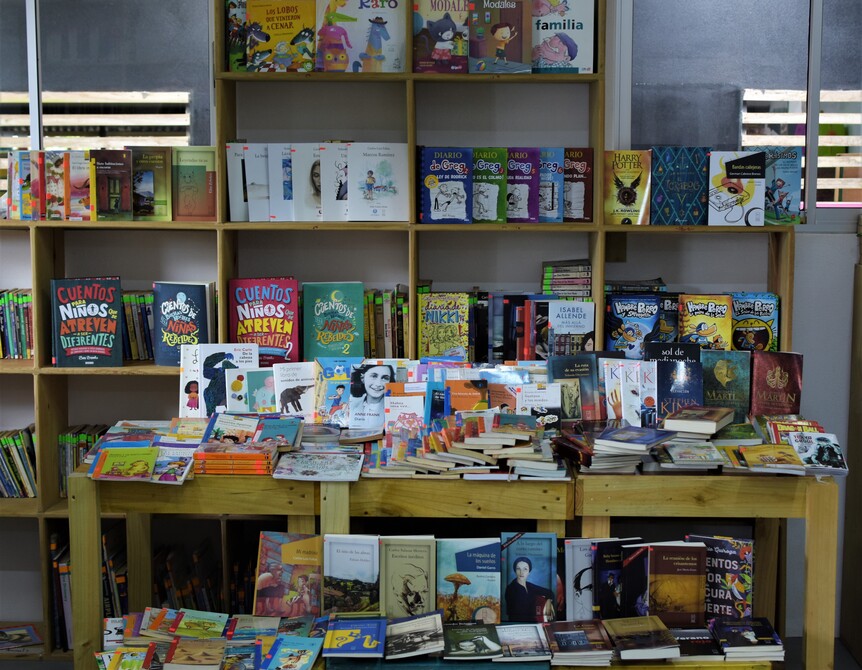
The Costa Rican rural area of the Nicoya Peninsula, presents many problems with respect to literacy and accessibility to information. It is for this cause that we started with the project of a community library, where the doors will be opened to the people of the Nicoya Peninsula. Last April we requested the help of hundreds of people for the donation of $ 5,000, what excites us is that we managed to exceed the proposed goal.
We proposed the purchase of Spanish language material, due to the fact that 80% of our library’s total bibliographic collection is in Spanish. Thinking of obtaining hundreds of books for elementary school and being able to offer a better children’s collection, we went to second hand bookstores, where we obtained great literary works of excellent publishing houses at very low prices such as Barco de Vapor, Torre de Papel, among others. We obtained great literary pieces for elementary school. We did not leave behind Costa Rican literature, in the Editorial de Costa Rica, we acquired brand new books, all the literature that the Ministry of Public Education suggests for school ages and we also got several titles for the smallest of collections with beautiful illustrations, which will catch more than one in the reading.
Thinking about the satisfaction of our teenagers, we moved on to the discounts that were found in the International Bookstore on manga, anime and youth series, more than 10 titles of these genres, which already have a waiting list in the library to be read. The youngest preschoolers were not left behind, in each of the purchases there were always books for them, but they needed a lot of love so we went to a store specializing in babies, BamoBam, and bought literary gems with the right material for their age as well as being interactive books that they needed and so authors like Eric Carle are available for these ages. Between all the book purchases, $1,400 was allocated.
In order to organize the purchase of all new acquisitions and the more than 8,000 copies that the library owns, the Destiny Follet cataloging system was installed. This system is used by the best school libraries around the world, where it is a complete library management system that can be accessed from anywhere, 24/7, which helps to strengthen the crucial link between the library, the classroom and the home. The first phase is ready, which is the creation of the online platform and user login. Now the most difficult part of the job remains, cataloging and entering each of our copies online. If you want to see how the page is looking click here. Soon it will be 100% ready for online booking. The purchase of $1,431 plus the purchase of a code scanner for $175.
The aesthetics and comfort of our current and future library users is not left behind, we have invested in the remodeling of the space with the purchase of new puff chairs for the different libraries, replacing the old ones that were in very bad condition. New shelves have been created that are more accessible to children. This is to create a more friendly and attractive space for all those who come to our facilities. Technology is not far behind and for the events that the library will hold, two new microphones were purchased.
All these advances in our project were made with the help of each of the donors and the people of Futuro Verde and Cóbano are grateful for every grain of sand received from people full of love for a better future for the community.
With hard work, it is expected that the goal of creating a community library in rural Costa Rica, can open its doors in November 2021.
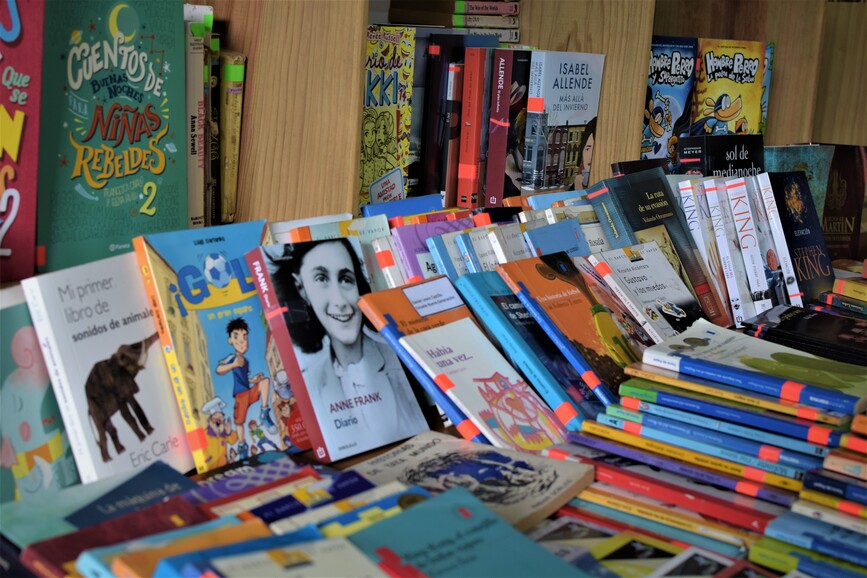
by Hileyn | Oct 1, 2021

In the Peninsula sector, especially in the area of Paquera, Tambor, Cóbano, Montezuma, Santa Teresa and surrounding areas where there are more than seven thousand people, access to information is scarce due to the lack of libraries in the area, both public and private, Attempts have been made by the municipality to create a library in the area, but with results that ended up closing its doors in the short time it was open and the nearest public library is more than 100 kilometers away.
This literacy problem is accompanied by the problem of poverty, according to INEC in 2020 ”the Central Pacific region is the one with the highest level of poverty and extreme poverty with 34.7% and 11.3% respectively”. This raises social alarms to extreme levels, and the need to do something to help the community to overcome this socio economic crisis.
With the renovation project of the library space, a computer lab, conference rooms, 8,000,000 physical books and a database, and trained personnel, the first community library is planned to meet the needs of the nearby population.
In November, the pilot plan for the community library will begin, working hand in hand with different governmental and private organizations, including the National Women’s Institute (INA), COPROBRI, and the Ministry of National Planning and Economic Policy (MIDEPLAN).
We will be working with approximately 25 families, who are already in different social programs in the area, offering workshops for children in literature, arts and languages, financial, computer, cooking and language training for women heads of household.
All activities go hand in hand with the implementation of the Sustainable Development Goals (SDGs), which propose ”global goals to eradicate poverty, protect the planet and ensure prosperity for all as part of a new sustainable development agenda” (UN).
Scholarships of up to 100% will be given to low-income people and they will have the priority of attention in each of the opportunities, in addition to a volunteer opportunity.
We need all the help possible for this social action project to achieve the expected success for the whole community, that is why if you want to be part of this initiative, please do not hesitate to contact directly the person in charge biblioteca@futuro-verde.org
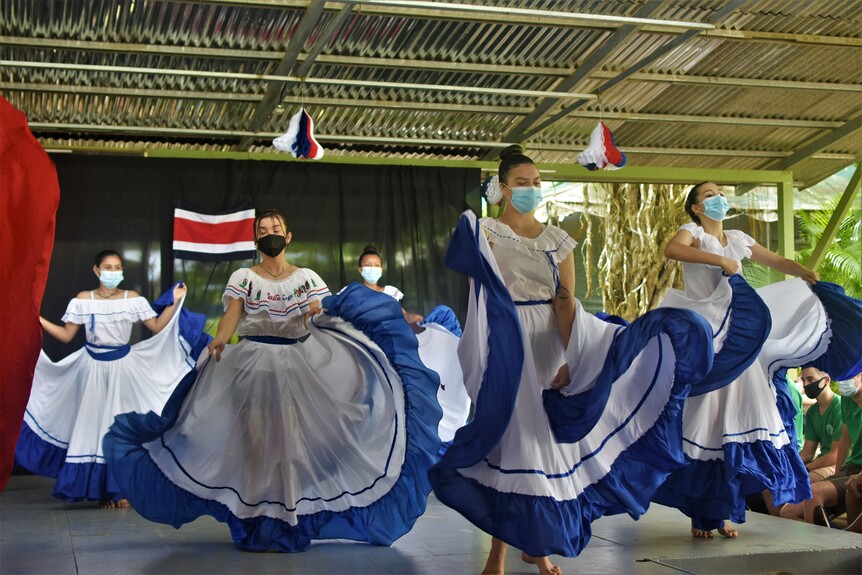
by Karol Madrigal | Sep 20, 2021

The month of September is a month of celebration throughout Central America and, for this reason, in Costa Rica, for example, we call it “the month of the homeland”. This is because on these dates each country celebrates the important process that began the night before September 15, 1821, when the representatives of the towns that previously made up the Captaincy General of Guatemala, decided to draft a document to demand to declare themselves independent from Spain. Those people who fought together for their sovereignty in those years, are the current nations of Guatemala, Honduras, Nicaragua, El Salvador and Costa Rica.
In this way, events such as the journey undertaken by students from all over Central America with torch in hand, which begins on September 1 leaving Guatemala and ends, when it has passed from country to country, arriving in Cartago, Costa Rica on the night of September 14. This commemorates the journey that was made to bring the news of independence to each nation of the Captaincy, which was made with a torch that illuminated the way and today is a symbol of freedom.
At the end of the torch’s journey in Cartago, when it is received by the president of our country, it is customary to start the parade of lanterns, which reminds us of the moment when the neighbors of Guatemala went out at night, with lamp in hand, around the place where the act of independence was being drafted, to demonstrate their enthusiasm and support for such a decision.
However, the celebration does not end like that, since the news of independence generated so much joy among the people, that we can remember how every September 15 the streets were filled with the beating of drums and colorful parades that reflect the joy with which the Central Americans started on that road to freedom.
It has been 200 years of journey, in which they have struggled to build a solidary, peaceful and hard-working nation. The journey has not been easy and we are far from being a perfect nation, but we can feel grateful to have a soil that gives us shelter and provides us with tranquility and stability.
Whether it is because we were born in this little piece of land, or because at a certain moment we decided to make it our home, let us feel privileged to be celebrating another year of freedom.
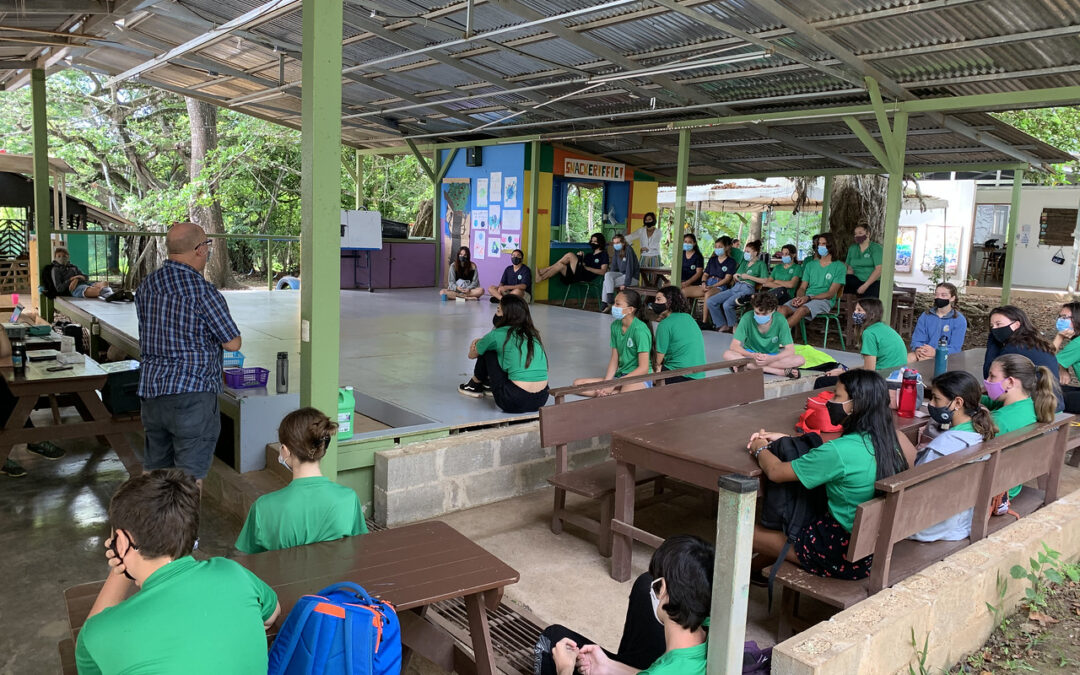
by Futuro Verde | Aug 12, 2021
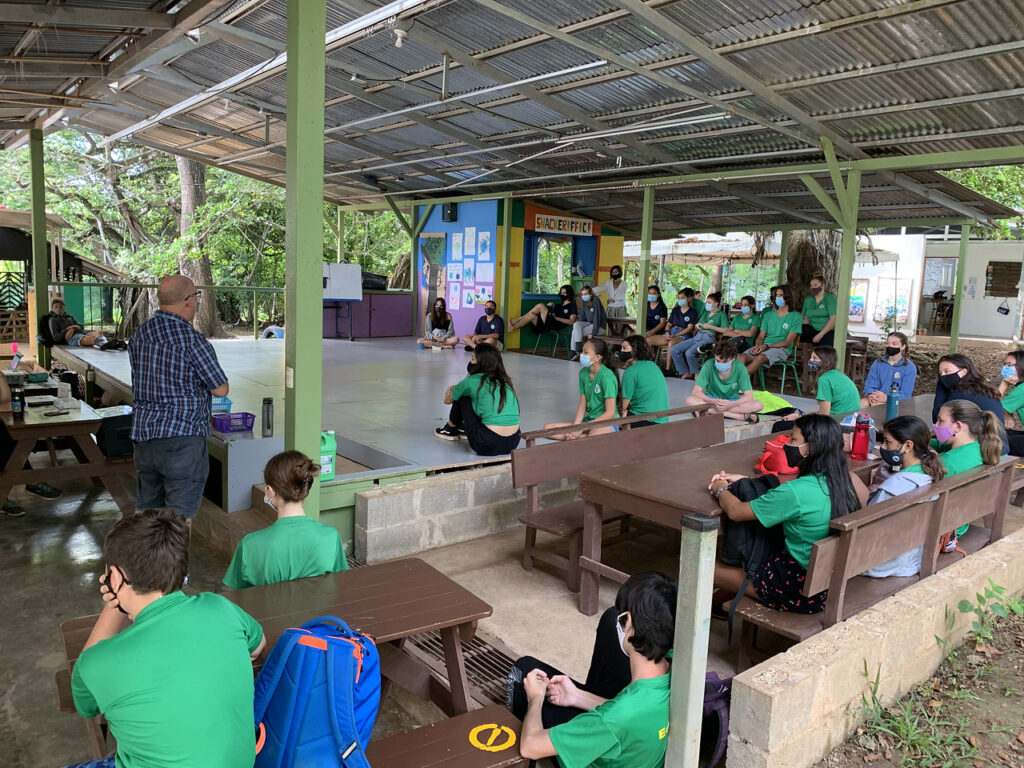
The process for getting a scholarship is carried out by the Social Worker, Verónica Peréz. She is the person in charge of receiving the scholarship applications and forms, collecting and analyzing the information, and making phone calls to the families, or home visits, if necessary, in order to interview the families and answer any questions they might have. At the end of the process, the Social Worker delivers a complete report on each family and also her recommendations of percentages for each one.
For the 2021 academic year we established three different percentages: 30%, 50% and 70%.
Below the 2021 scholarship process:
- Analyzing scholarship application´s process and established criteria:
- Submission of the completed application is mandatory and necessary for the application in order for it to be considered.
- Stages of analysis and study of the cases:
- 1st stage: analysis of the application
- 2nd stage: case review
- Once the analysis is complete, the social worker will provide her recommendations to the Futuro Verde administration. Decisions will be communicated to the families who have participated in the process.
- Families who have been approved for the scholarship must sign the corresponding contract.
2021-2022 Scholarship Program Important Dates:
- Scholarship application period: June 14 – July 16, 2021
- Review period for completed scholarship applications and discount requests: July 19 – August 13, 2021
- Announcement of scholarships and discounts: week of August 16, 2021
- Pre-registration period for students with scholarship or discount granted: August 23 to September 3, 2021
Reasons for denial or withdrawal of a scholarship or discount:
- Student or family misbehavior.
- Poor academic performance.
- Delays in payments without maintaining communication with the finance department.
- The execution of any serious misconduct stipulated in the internal regulations of the institution.
This year scholarships will be awarded to:
- Preschool
- Second Grade
- Seventh Grade
- Eighth Grade
- Ninth Grade
Remember that the scholarship program is an annual program, so the scholarship or discount granted applies for one academic year only.
This process will be carried out every year for all those families who wish to apply and also meet the requirements for a scholarship or discount.

by Futuro Verde | Aug 4, 2021

As you may know, the IB learning community profile is guided by certain principles, principles that all Futuro Verde students embrace, giving an opportunity for each student to explore themselves, get to know themselves, and grow in a more holistic way.
One of my favorite ones is “Knowledgeable”, because as you may have heard: “knowledge is power”.
For many reasons (lack of information, fear, taboos, social opinions, etc.), women have had a hard time approaching the complete knowledge of menstruation. Without realizing it, we are giving away a super power we have: to ovulate! Yes, ovulation and all that implies. In fact my menstrual cycle teacher (yes, I have a teacher about this subject) says that the cycle should be called “ovulatory cycle” and not menstrual cycle, and I completely agree.
The cycle involves a coordinated and important movement of hormones throughout the month and ovulation is our official “tracker” of whether everything is going right or something is wrong (again, yes! Ovulation). It is so important for our health that Dr. Lara Briden devoted an entire book to explain why it should be considered our fifth vital sign.
That is why it is essential that girls begin to learn, before their menarche (their first menstruation), the whole experience of the menstrual cycle. They must learn how to read and record all the information that the menstrual cycle can give them.
Knowing themselves and the processes of their body and hormones will help them take care of their health in a more comprehensive way. They will also be able to detect health problems, eat according to the stage they are in, among many other things they can do with this information.
I told you, we have a super power!
During the menstruation workshops that I will be teaching to the fourth, fifth and sixth grade girls, we will learn about the complete experience of the cycle. We will learn the name of all the body parts involved and we will also be able to understand what happens from a creative and energetic level at each stage (and any other concept related to it). I must admit that I am very excited! Getting to know myself at this level has changed my life and my perception about myself, now it’s our student´s turn!
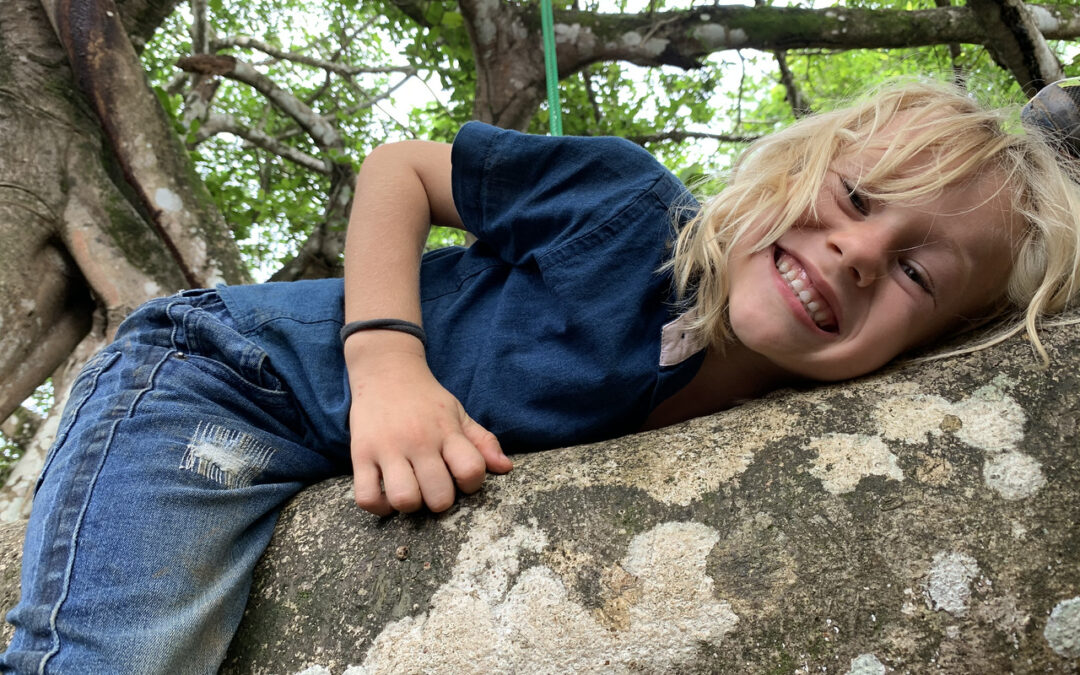
by Stephanie Nuñez Jiménez | Aug 4, 2021
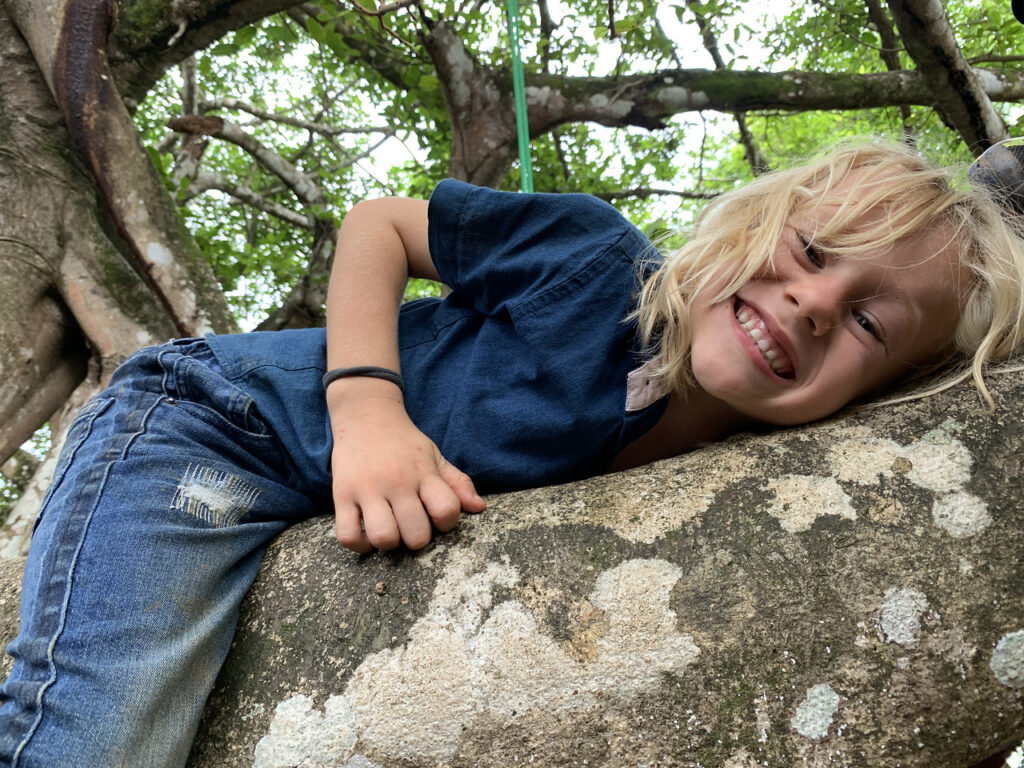
Here in Preschool it should come as no surprise that our priority is…FUN!
Yes, we are responsible for our student’s first experience of what school is and yes, we take that responsibility very seriously.
Yes, our students learn about the structure of school and what the expectations are for their behavior.
Yes, our students are learning how to socialize with other students, how to form friendships and how to resolve conflicts.
Yes, our students are engaged in a rigorous academic program where they are obtaining the basic skills of literacy, numeracy and critical thinking that they will require to succeed in future grades.
BUT… our philosophy of instruction is based on PLAY. Multiple studies over decades of research have shown that all students, but especially those 6 and under, learn most effectively when they are enjoying the learning process. In our classroom, we ensure that our instruction is play based by providing a variety of activities for our students to choose from during center time, allowing our students autonomy over their learning. We build up our skills to work on whole group projects, and go on journeys of investigation as a class. We allow the students to explore the concepts of each unit, taking into account a variety of learning styles: auditory, visual, reading and kinesthetic.
We are honored to be charged with the facilitation of an engaged and enjoyable relationship with learning for our littlest school citizens. We thank you for reading and leave you with one suggestion ….go outside and PLAY!









